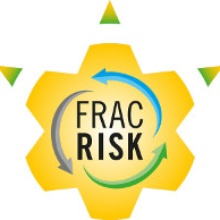- Description
-
The objectives of FracRisk are to develop a knowledge base for understanding, preventing and mitigating the potential impact of the exploration and exploitation through hydraulic fracturing (fracking) of significant shale gas reserves found throughout Europe, and to develop a decision support tool for risk quantification of the environmental impacts of the technology. The aim is to provide key scientific‐based yet practical recommendations aimed at minimising the environmental footprint of shale gas extraction through effective planning and regulation, and also to address public concerns.LH2 is lead on Workpackage 5: Model Development and Modelling Model Development. The main tasks of this workpackage are: review of standard industry modelling capabilities, development of model scenarios including key processes and key events, validation of models with real data and identification of optimal data density for cost effective uncertainty reduction. Besides the coordination of the workpackage LH2 will contribute with numerical modelling concepts developed in-house and implemented into the simulator Dumux.
- Project manager
-
Class, Holger
Helmig, Rainer - Research assistants
-
Kissinger, Alexander
Beck, Martin
Gläser, Dennis - Department
-
LH2
- Duration
-
06/2015 - 05/2018
- Funding
-
European Union's Horizon 2020 Research and Innovation programme under Grant Agreement No. 640979
- Cooperation partners
-
PENN STATE - Marcellus Centre for Outreach and Research (USA), Spanish National Research Council (Spain), Bundesanstalt fur Geowissenschaften und Rohstoffe (Germany), Jung Geotherm (Germany), Environmental & Water Resource Engineering (Israel), University of Vienna (Austria), Heriot-Watt University (UK), Uppsala University (Sweden), The National Center for Scientific Research (France), The University of Gottingen (Germnay), The University of Edinburgh (UK), Politecnico di Milano (Italy)


